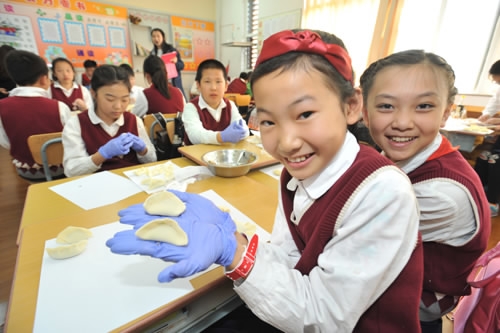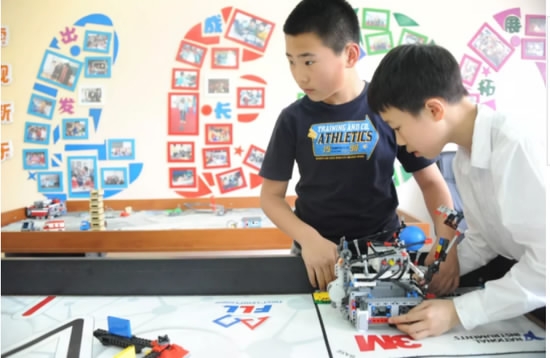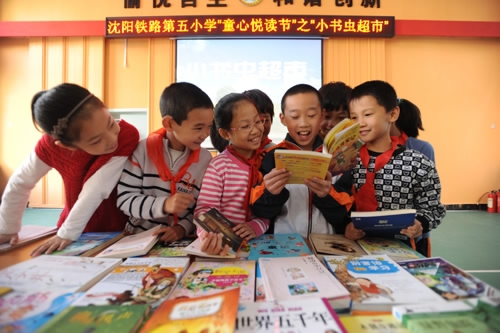
China
19:47, 15-Mar-2018
Chinese primary school has not given students homework in 34 years
CGTN

Homework in China is still a big deal, as parents believe that the more homework their child does, the better they will perform academically. But one primary school in northeast China has bucked the trend, not having assigned any homework to their students for the past 34 years.
The principals at Shenyang Railway No. 5 Primary School in Liaoning Province have not assigned any homework since 1984, but its students are still getting quality education.

Students are making dumplings in the traditional Chinese culture club. /Photo via Xinhua News
Students are making dumplings in the traditional Chinese culture club. /Photo via Xinhua News
The tradition started when Zhang Xiuying, the principal at the time, decided to conduct an experiment in one class by cancelling all homework after school, while improving teaching efficiency and teacher-student interaction during class time.
After six months, students from the experimental class performed better academically compared with peers in other classes.

Student flying drone in the aeromodeling club. /Photo via Xinhua News
Student flying drone in the aeromodeling club. /Photo via Xinhua News
Now, more than 3,100 students from 67 classes at the school follow this tradition.
But how can they prepare for the pressures of the entrance examination for secondary school without doing homework?
According to principal Yu Ying, the secret is to make teaching in class more efficient. This puts the responsibility on teachers to prepare their lesson plans well, so that students can learn as much as they can during class time.

The robotics club is highly popular among students. /Photo via Xinhua News
The robotics club is highly popular among students. /Photo via Xinhua News
Another innovation is that students from all grades will have a 15-minute mini class in the afternoon (most classes in China are 40 minutes), during which they can focus on improving a particular ability such as memorizing, listening, or summarizing.
However, not having homework doesn’t mean that students do nothing after school. In fact, they are encouraged to read extracurricular books at night, or watch the news on TV or online.

Students are sharing their favorite books during a reading program. /Photo via Xinhua News
Students are sharing their favorite books during a reading program. /Photo via Xinhua News
They can also find and develop their interests by taking the more than 60 extracurricular clubs at school, spanning technology, arts, sports, and others.
Wang Hongliang, a 2013 graduate of the school who had earned the 3rd highest score for the high school entrance exam in Shenyang City, said: "We really learned a lot from that experience. That’s what I gradually found out during my later studies at middle school and high school."

SITEMAP
Copyright © 2018 CGTN. Beijing ICP prepared NO.16065310-3
Copyright © 2018 CGTN. Beijing ICP prepared NO.16065310-3